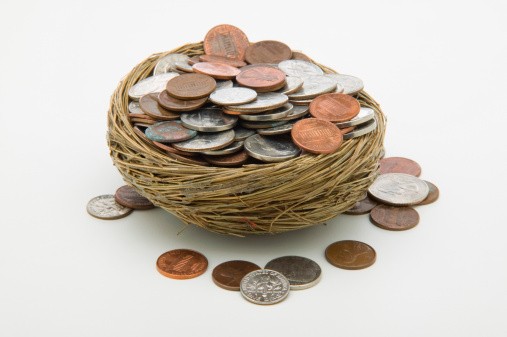How safe is your moneymarket fund
Post on: 24 Июнь, 2015 No Comment

How safe is your money-market fund?
The industry insists that they are and banking regulators arent calling in the National Guard, although the U.S. Treasury Department is considering some emergency measures in case of a U.S. debt default.
Yet with the U.S. default risk hissing like a cobra, Congress and the White House at loggerheads and all the bad debt sloshing around Europe, is there a reason to be concerned?
Fear has reared its coiled head again. On Monday, stocks worldwide slumped on fears that Europe’s financial woes would spread to Italy.
If Congress doesnt raise the federal debt ceiling, the prospects that interest rates will soar and there will be a run on money-market funds rise dramatically. Everything from company payrolls to Chinese stocks may get gobsmacked.
The government guarantees enacted in 2008 for money-market mutual funds are no longer in place. Money market accounts offered by banks with FDIC insurance are still covered.
Mutual funds are always subject to some credit risk, although its typically little since they only invest in relatively high quality short-term debt.
Although weve heard money-fund reassurances before, theres no reason why there cant be more transparency to see if investor concerns are justified. Remember that money funds had to be backstopped with short-term federal guarantees in 2008 when that market nearly crashed (along with nearly everything else except for U.S. Treasuries).
Theres also a lot of worry over whether sovereign debt from Greece and other troubled euro zone countries will hurt U.S. money fund portfolios. If you have a money fund that invests mostly in U.S. Treasuries, theres no need to fret unless the U.S. debt ceiling isnt raised.
According to a statement issued by the Investment Company Institute on June 20, U.S. money market funds have no direct exposure to Greek sovereign debt, and they have managed and continue to manage any indirect exposure. The ICI is the Washington-based trade association for mutual funds.
What about European banks that hold Greek debt? They may be represented in U.S. money fund portfolios, hence the indirect exposure reference. Credit ratings agencies are reviewing those banks for any problems, which is always a concern. Check your fund prospectus to see what your manager holds.
While the ICI insists that these are large, profitable banks and their exposure to Greek debt is a small fraction of their capital, Im not sure if anyone has fully explored the possibility of a Greek debt default on money markets. Will the European Central Bank step in to ensure liquidity? Probably. Will the U.S. Federal Reserve get involved? It would be obligated.
Whats fairly certain is that the 2008 meltdown has made mutual fund managers fairly careful in what they purchase for their portfolios, the vast majority of which never breach the $1 per share level.
In general, money funds are being run more conservatively and with more portfolio holdings transparency than ever before, emailed Mike Krasner, managing editor of the independent imoneynet.com website. which monitors the money fund industry. For more than a year, U.S. prime (the highest rated) money-market funds have had no direct holdings of Greek debt, sovereign or private.
Still, money funds can still break the buck if they take a big hit on bond defaults. How likely is that to happen? It depends on the money fund, its holdings, diversification and overall credit profile. Most money funds are probably safe, although theres absolutely no government rule that says they have to return 100 percent of principal. Its estimated that prime money funds hold about $1 trillion in debt from Euro zone banks. Most of that debt will likely be repaid, although the black swan event of a run on money funds holding euro debt is a worst-case scenario.
A recent history lesson is in order. The Reserve Fund, a money fund that had invested heavily in Lehman Brothers that failed in September, 2008, broke the buck. That triggered a run on all large money funds and forced the Fed to temporarily insure the holdings of those portfolios.
If youre nervous and cant afford to lose any principal there are always bank money-market accounts that carry FDIC insurance. Youre covered up to $250,000. The drawback is that they typically yield less than money market mutual funds. To find the highest-yielding account, see www.bankrate.com. Also check out your local credit union. which offers competitive yields.
The worst thing you can do is take the mattress strategy. A government-insured bank account is still safer than stuffing your cash under the pad you sleep on. You need that money to be secure and liquid to pay bills, taxes and cover emergencies. Its better to have this money in a low-yielding insured account. Youll lose much more sleep scrutinizing money-fund portfolios.














